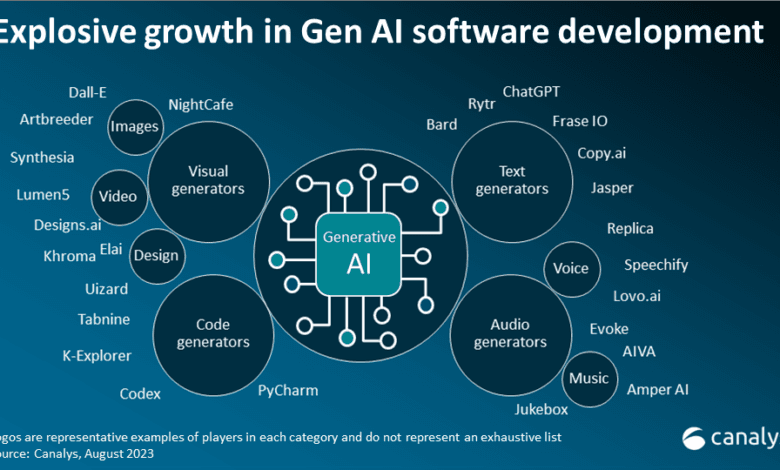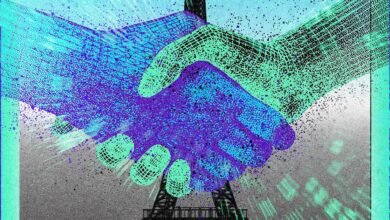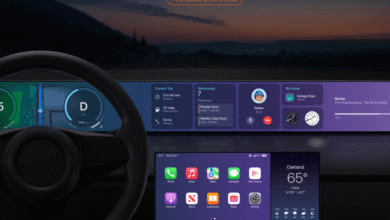Quick Reads
[Quick Read] Competition or Collaboration? The AI Tool Ecosystem

This article is part of the ‘AI in the Code Realm’ quick reads series, exploring how AI is reshaping the landscape of software development.
Analysis of How Competition Drives Innovation but Also Fosters Collaboration in AI Development
- Competition as a Catalyst for Innovation: The race to develop the most effective AI coding tools has led to significant advancements. Each company strives to offer unique features or superior performance, pushing the boundaries of what AI can do in software development. For instance, the competition between Anthropic’s Claude and OpenAI’s Codex has accelerated improvements in code generation, understanding, and debugging capabilities.
- Collaboration Overlaps: However, this competition doesn’t exist in a vacuum. Companies are often collaborators in broader tech ecosystems. For example:
- Open Standards: There’s a push towards adopting open standards for AI in coding, which allows tools from different providers to interoperate, benefiting developers who use a mix of tools from various vendors.
- Cross-Platform Compatibility: Many AI coding assistants aim to be compatible with a wide range of development environments, which indirectly fosters collaboration by ensuring that developers can mix and match tools as needed.
- Shared Research: Academic papers, conferences, and shared research initiatives mean that advancements in one company’s AI can inspire or directly contribute to another’s, even if they are competitors in the market.
Examples of Partnerships or Open-Source Initiatives That Blend AI from Different Companies
- Partnerships:
- Microsoft and OpenAI: This partnership exemplifies how collaboration can lead to mutual growth. Microsoft integrates OpenAI’s technology into its products like Azure and GitHub, providing OpenAI with a massive platform for real-world application while Microsoft benefits from cutting-edge AI capabilities.
- IBM and Red Hat: IBM’s Watson and AI technologies are often combined with Red Hat’s open-source solutions, creating hybrid platforms where AI can be leveraged in open environments.
- Open-Source Initiatives:
- Hugging Face: While not specifically a coding assistant, Hugging Face’s platform for sharing AI models and datasets promotes a collaborative environment where developers can contribute to, and benefit from, AI advancements regardless of their origin.
- Keras and TensorFlow: These open-source libraries have fostered an ecosystem where AI developers from different companies can contribute, leading to better tools for everyone.
- GitHub: Beyond Copilot, GitHub hosts countless open-source AI projects where developers from different companies or backgrounds collaborate on AI tools, including those for coding assistance.
The Role of Open Standards and Interoperability in AI Tools for Coding
- Open Standards: Standards like those proposed by the Open Neural Network Exchange (ONNX) allow AI models to be transferred between different frameworks, reducing lock-in and promoting an environment where the best tool can be chosen for each task without compatibility issues.
- Interoperability: This is crucial in an era where developers might use multiple tools from different providers. Interoperability ensures that, for example, an AI coding suggestion from one tool can be seamlessly integrated into another platform or workflow, enhancing productivity.
- API-First Approaches: Many AI tool providers are adopting API-first strategies, allowing their AI services to be easily integrated into various development environments, thus encouraging a collaborative tech landscape.
Cultural Shifts in the Development Community
- From Competition to Ecosystem Thinking: Developers are increasingly viewing the AI tool landscape as an ecosystem where they can leverage the best from each provider, rather than committing exclusively to one.
- Community-Driven Development: Open-source AI projects are becoming hubs for innovation where competition is balanced by the shared goal of advancing AI capabilities for coding.
- Ethical Collaboration: There’s a growing trend of companies and developers working together to ensure AI tools are developed with ethical considerations, sharing best practices for bias mitigation, privacy protection, and transparency.
Future Directions
- Collaborative AI Development Platforms: We might see platforms where AI tools from different companies can work together in real-time, providing a unified coding experience tailored by multiple AI insights.
- AI Tool Aggregators: Services that aggregate and harmonize AI tools from various vendors, offering developers a one-stop solution to access the best of AI for their specific needs.
- Standardized AI Ethics Protocols: More formalized collaborations might focus on developing shared protocols for ethical AI use in coding, ensuring that as AI tools evolve, they do so in a way that respects human rights and societal norms.
The AI tool ecosystem for coding is a fascinating blend of fierce competition and necessary collaboration. As this field evolves, the interplay between competing to lead and collaborating to advance will likely shape how AI integrates into software development, pushing for a future where innovative, ethical, and efficient tools are available to all developers.
Quick Read Series: “AI in the Code Realm”
- The Rise of AI Code Assistants: From Automation to Collaboration
- Meet Claude: The Code Whisperer
- The Silicon Giants Respond: AI Strategies of OpenAI, Google, Microsoft, and Meta
- Grok by xAI: More Than Just Code
- The Developer’s New Best Friend: How AI Enhances Coding
- Ethical AI and Coding: Navigating the Future
- The Future of Code with AI: Predictions and Trends
- Competition or Collaboration? The AI Tool Ecosystem
- Hands-On with AI Coding Tools: Practical Tips and Tricks
- Conclusion: The Coder’s New World




